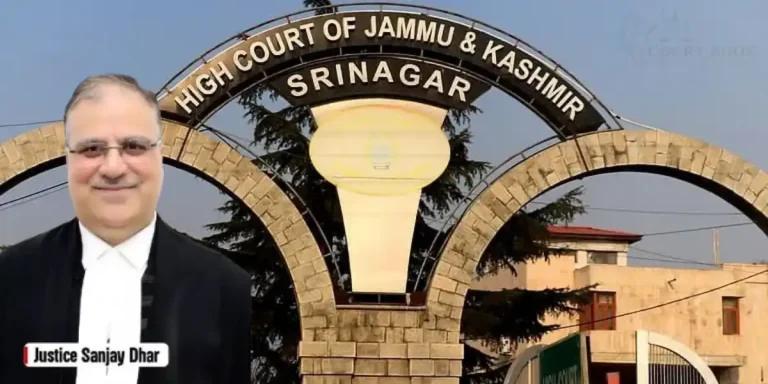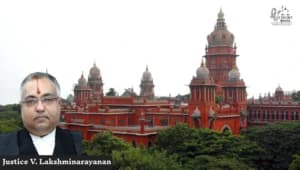Reaffirming a key principle in disciplinary law, the High Court of Jammu & Kashmir and Ladakh has ruled that a full-fledged departmental enquiry is not necessary when the delinquent employee clearly admits to the charges. The Court upheld the penalty of compulsory retirement imposed on Mushtaq Ahmad Khan, a re-engaged ex-serviceman, stating that a detailed enquiry becomes redundant when the facts are admitted.
“Once the petitioner has admitted that he was having a subsisting marriage when he married a second time and that he did not furnish any intimation to his employer, there is hardly any need to go for any further enquiry into the articles of charge framed against him,”
observed Justice Sanjay Dhar.
Mushtaq Ahmad Khan, who retired from paramilitary service in 1999, was re-engaged in 2003 and posted at Srinagar Airport. A complaint was lodged against him by Sajida Alia Tabasum, alleging physical and mental cruelty and concealment of an earlier ongoing marriage with Sarwar Jan. Based on this, Khan was arrested and later suspended.
A disciplinary action followed under Rule 14 of the CCS (CCA) Rules, 1965, and on October 3, 2023, the Bureau of Civil Aviation Security imposed the penalty of compulsory retirement, well ahead of Khan’s scheduled superannuation in November 2025.
Read Also:- Allahabad High Court Orders Electricity Restoration at SP MP’s Home, Stays ₹1.91 Crore Power Dues
Khan challenged this decision before the High Court, claiming that no proper enquiry was conducted and that his second marriage was valid under Muslim personal law. He also argued that departmental permission for the second marriage was not required.
However, the government side, represented by DSGI T.M. Shamsi, maintained that Khan violated Rule 21 of the CCS (Conduct) Rules, 1964, which mandates prior permission before a second marriage during the subsistence of a first marriage—even if such marriage is allowed under personal law.
Read Also:- J&K High Court Halts Executive Control of Shri Nav Durga Jhaleri Mata Shrine, Appoints Interim Administrator
The Court observed that a show-cause notice had been issued in August 2021, to which Khan responded by admitting his 2016 marriage to Tabasum. Initially, he claimed his first marriage had ended but later contradicted himself by confirming in writing that it was still subsisting. These replies were treated as unequivocal admissions.
“The petitioner, in his replies, made it clear that he had entered a second marriage while the first one was still valid and without informing the department. Such admission proves the charge beyond doubt,”
noted the Court.
Read Also:- Suspension of HOD in Sexual Harassment Case Builds Trust Among Women Employees: Allahabad High Court
Justice Dhar stated that once such admission exists, a full enquiry with oral testimony is unnecessary under Sub-rule (10) of Rule 14 of the CCS (CCA) Rules.
Addressing the issue of pension, the Court noted that only provisional pension was granted under Rule 8(3) of the CCS (Pension) Rules, 2021, due to a pending criminal case. The Court held that this decision aligned with the law and did not require judicial interference.
Read Also:- Supreme Court: Property Transfer Under Section 48(e) Is Voidable, Not Automatically Void
“In the face of unequivocal admission of the petitioner to the charge levelled against him, the finding rendered by the Enquiry Officer, on the basis of which the impugned order has been passed, cannot be interfered with,”
concluded the Court.
Thus, the High Court dismissed Khan’s writ petition, upholding the departmental action based on clear legal provisions and admissions made by the employee during disciplinary proceedings.
Case Title: Mushtaq Ahmad Khan Vs UT of J&K















